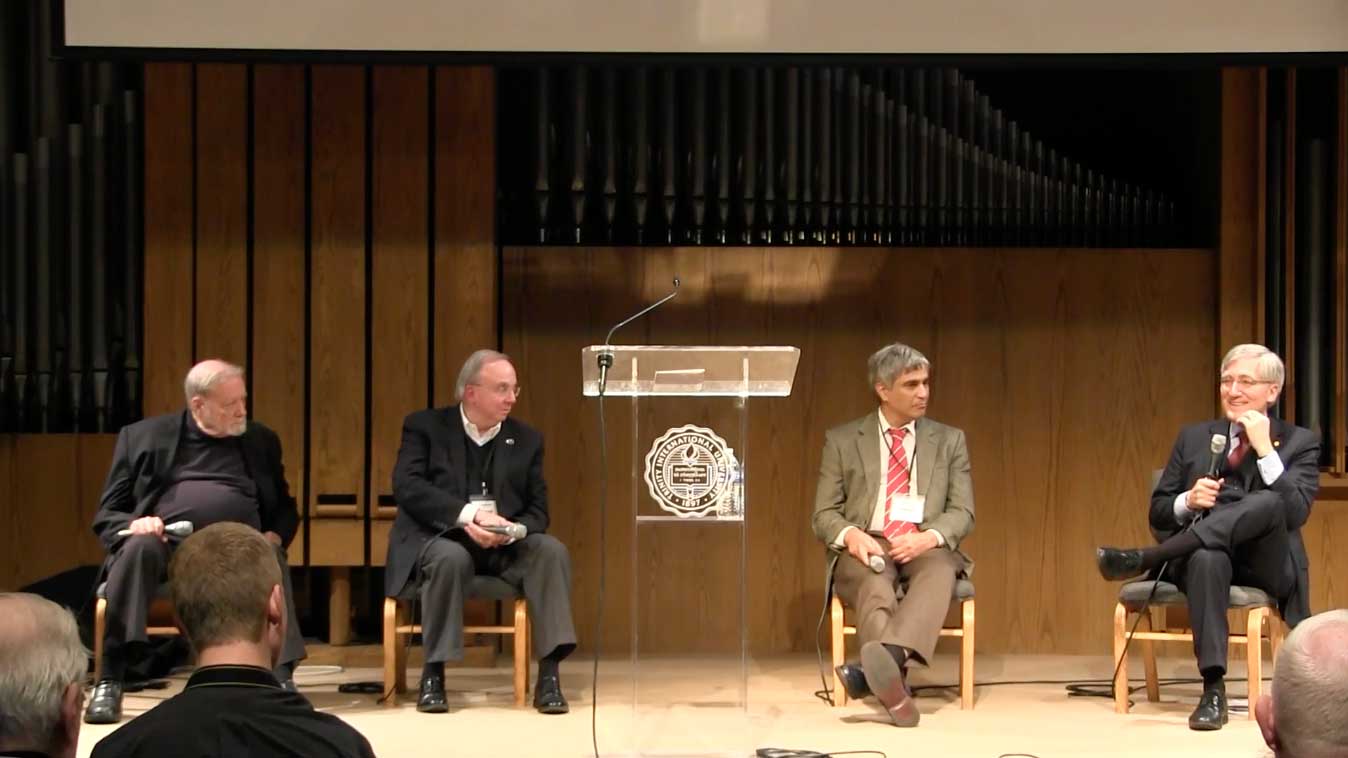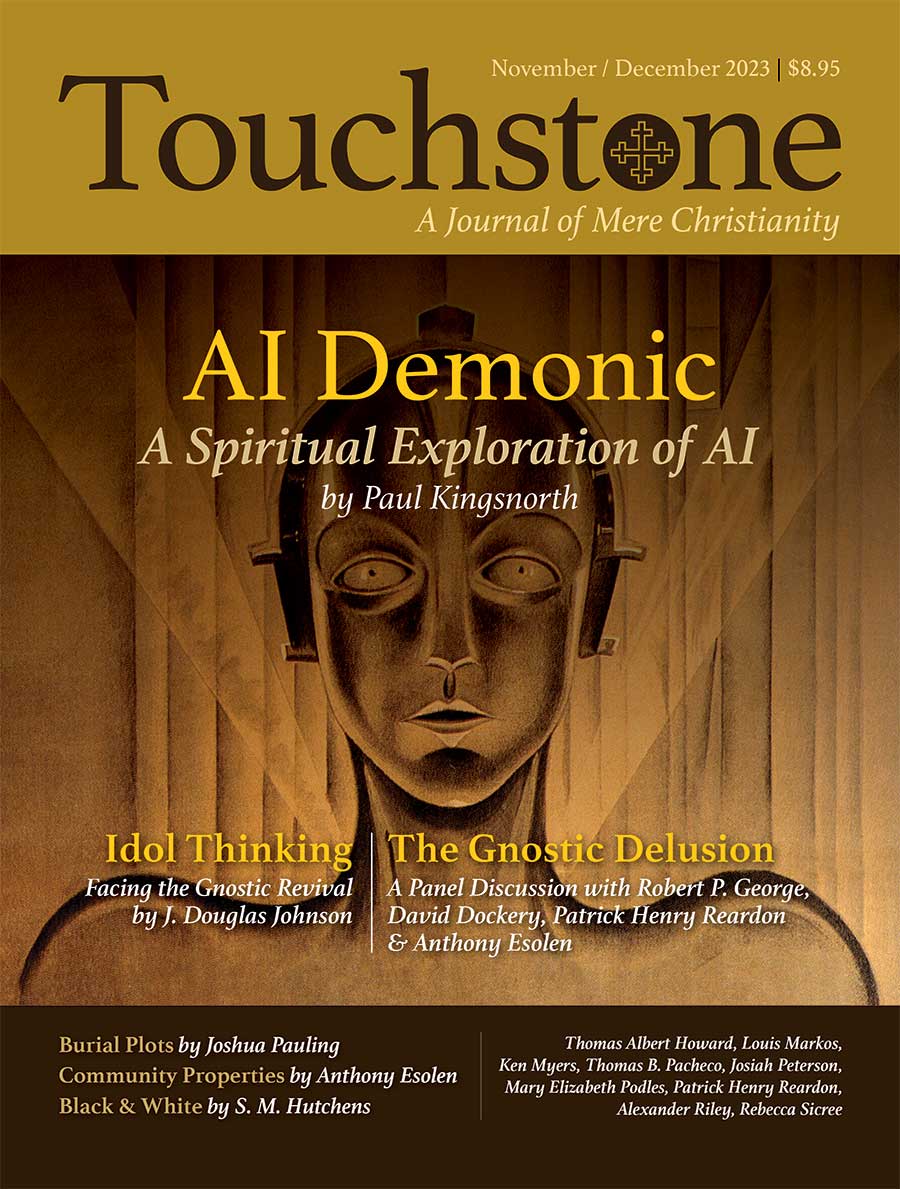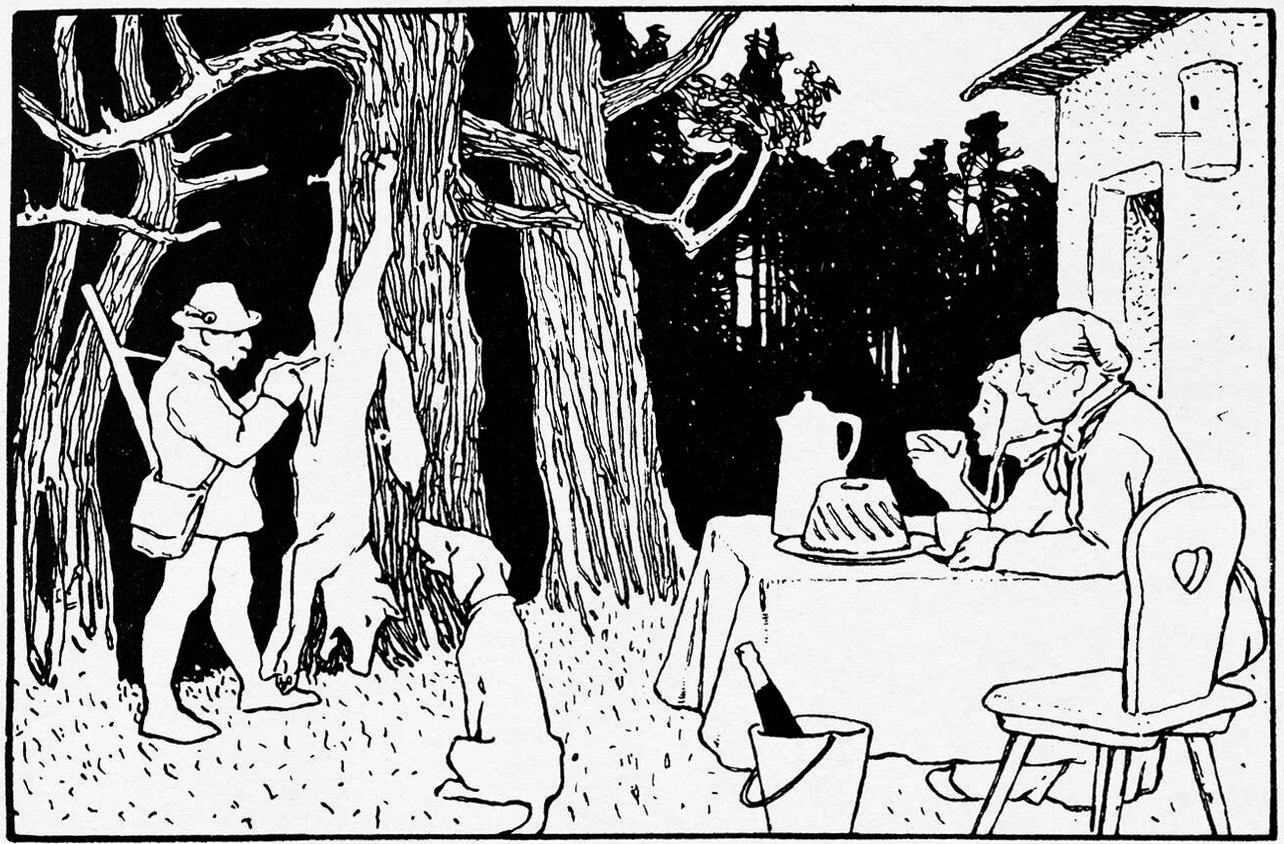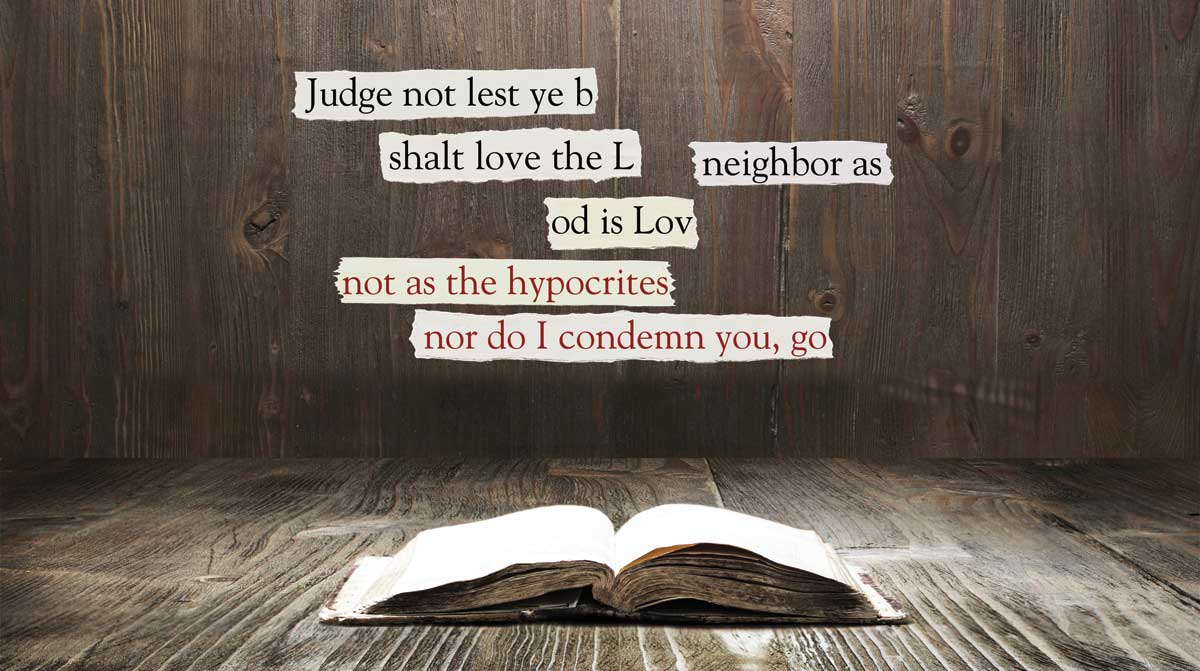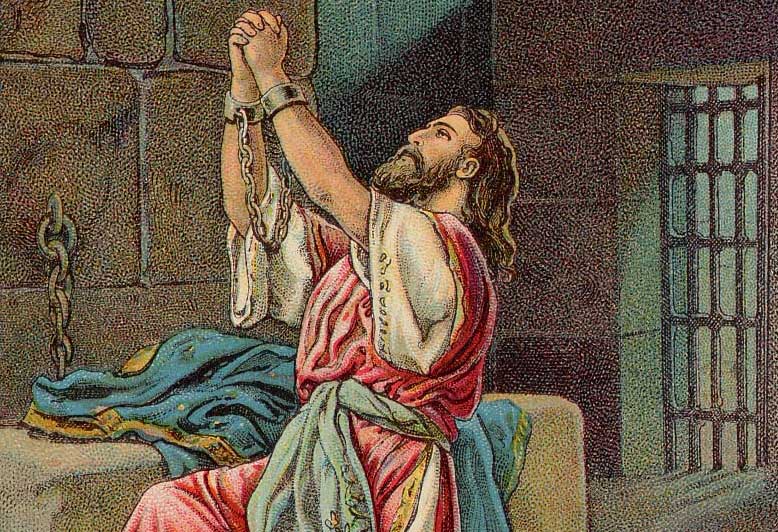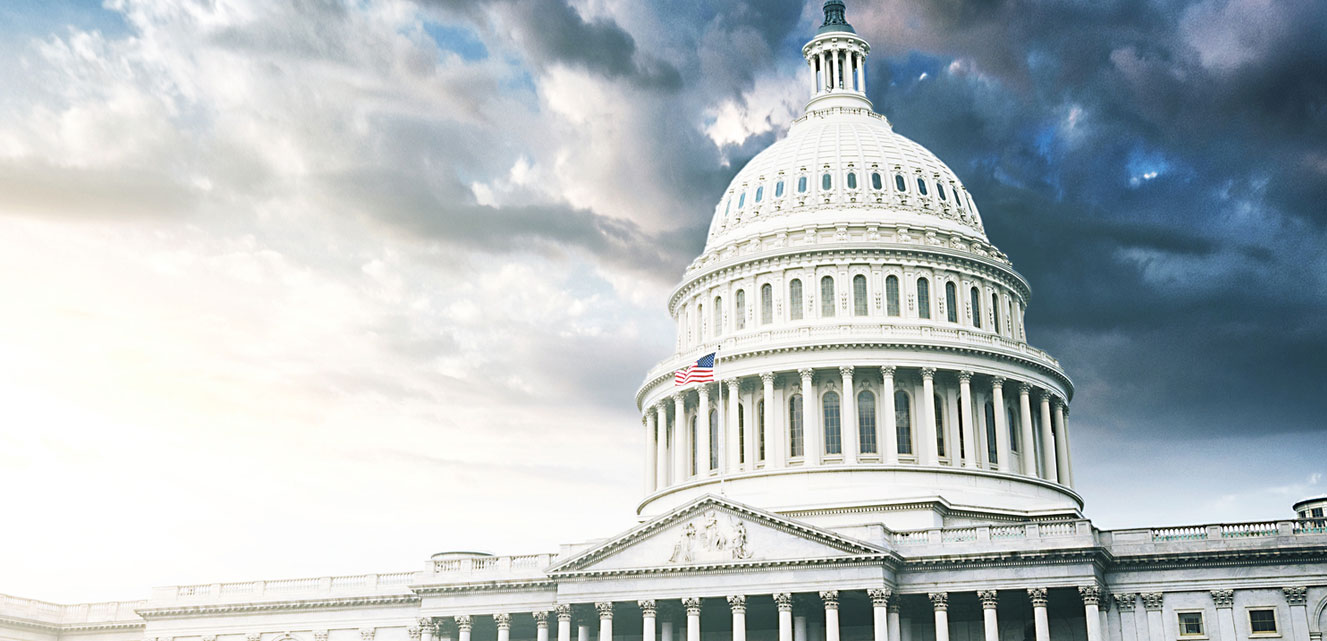The Gnostic Delusion
I have not read a single article or book that does a better job connecting the dots on everything from our seduction with AI and digital transhumanism, to marriage redefinition, to . . . (you name it), than Robert George managed to do in his 2016 Touchstone conference talk on “The Gnostic Revival.”
I encourage all our readers to listen to Dr. George’s presentation (available on our website), in which he emphasized the dualistic nature of Gnosticism, the heresy that holds that the body is a mere instrument of no particular worth and separate from the mind or soul. Following that talk, Touchstone senior editors Fr. Patrick Henry Reardon, Dr. Anthony Esolen, and Dr. David Dockery joined Dr. George onstage to discuss the implications of what they just heard. The following is a slightly edited transcript of that discussion.
—J. Douglas Johnson, Executive Editor
David Dockery:
I want to raise the first question, Dr. George, in light of what was almost a passing comment in your wonderful presentation, the recognition that current liberal thought has adopted this body-soul distinction, this neo-gnostic view. Unfortunately, it seems to me it also has crept into portions of the Church in all of its traditions. And you see it in current conversations about religious liberty. You made a passing comment about the physician or the surgeon who may not have a choice in this matter and whose religious liberty would be violated. We hear an awful lot today about SOGI laws (sexual orientation and gender identity laws) and how religious liberty and SOGI laws can coexist together. So in light of what you have shared with us so beautifully this evening, might you take it to the application stage for us, on the implications for religious liberty?
Robert George:
I am very skeptical of these SOGI laws. First of all, the religious liberty guarantees will not hold. What happens is that a deal is struck, usually not a very good deal. At most, as in Utah, some religious liberty interests of the Church are protected. In that case, the liberty interests of the LDS Church, the Latter-Day Saints Church, are protected, but not the interests of the faithful—not the photographers, or the florists, or the doctors or nurses in the case of abortion, or what have you.
When discrimination based on sex is now taken to mean a protection of abortion, so-called abortion rights, it’s not only that the religious liberty interests, meager as they are, are eroded. Because once the other side has gotten what it wants, which is the SOGI protections, it can turn all its attention and resources into undoing what it gave up to get that deal.
We ought not to buy into the concepts of sexual orientation and gender identity in the Church itself. That’s a big problem. Do you want your faithful believing that they have something that your grandfather didn’t know he had? Did your grandfather know he had a sexual orientation? Probably not. He was right. He didn’t.
This self-identifying on the basis of sexual inclination, sexual desire, homoerotic activity, homoerotic relationships—this is known to history. Well known all the way back. But the idea of sexual orientation, much less gender identity—which your grandfather didn’t know about either—that is a modern invention. That’s an invention of nineteenth-century psychology.
I’ve told you about different ways I have fun with my colleagues. Sometimes I ask them, “This thing’s for real? Sexual orientation, that’s for real, right?” “Oh, yes. Absolutely exists.” “I mean, it’s a mistake to say it doesn’t exist.” “Oh, yeah, it’s a mistake to say it doesn’t exist.” “It’s real because it’s a matter of scientific fact, right?” “Oh, it’s a matter of scientific fact!”
Robert P. George is McCormick Professor of Jurisprudence and Director of the James Madison Program in American Ideals and Institutions at Princeton University (web.princeton.edu/sites/jmadison). His books include In Defense of Natural Law (Oxford University Press) and Conscience and Its Enemies (ISI Books). He has served as chairman of the U.S. Commission on International Religious Freedom. He is a senior editor of Touchstone.
subscription options
Order
Print/Online Subscription

Get six issues (one year) of Touchstone PLUS full online access including pdf downloads for only $39.95. That's only $3.34 per month!
Order
Online Only
Subscription

Get a one-year full-access subscription to the Touchstone online archives for only $19.95. That's only $1.66 per month!
bulk subscriptions
Order Touchstone subscriptions in bulk and save $10 per sub! Each subscription includes 6 issues of Touchstone plus full online access to touchstonemag.com—including archives, videos, and pdf downloads of recent issues for only $29.95 each! Great for churches or study groups.
Transactions will be processed on a secure server.
more on Culture from the online archives
more from the online archives
calling all readers
Please Donate
"There are magazines worth reading but few worth saving . . . Touchstone is just such a magazine."
—Alice von Hildebrand
"Here we do not concede one square millimeter of territory to falsehood, folly, contemporary sentimentality, or fashion. We speak the truth, and let God be our judge. . . . Touchstone is the one committedly Christian conservative journal."
—Anthony Esolen, Touchstone senior editor





